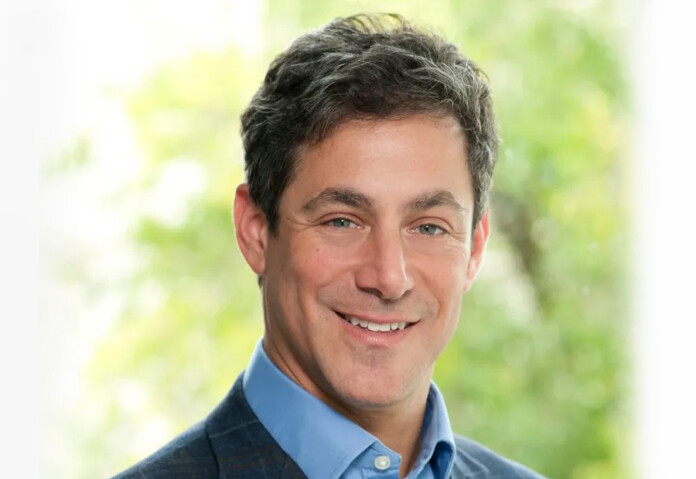In Brief
- Fragmented approach to climate goals needs to change
- Strategy and execution need equal importance
- Financial goals and climate goals can be achieved at the same time
- Switch climate dialogue from cost reduction to value creation
- The quality of Carbon Credits are as important as their quantity
Bradford H Dockser is the CEO and Co-founder, GreenGen, a global energy solutions provider. He is a Global Governing Trustee at the Urban Land Institute (ULI) and member of the Global Advisory Board for ULI’s Randall Lewis Center for Sustainability in Real Estate in Washington, DC. He was in Mumbai to formally launch GreenGen’s expansion into India and participate in the ULI India Summit.
What brings you to India and what has been the presence of GreenGen in India so far?
I came to Mumbai to speak at a conference for the Urban Land Institute. I was speaking with large global investors present in India on sustainability, on how to create a community of people and develop best practices. I was also part of a panel that focused on sustainability in the context of equitable development here in India, including urban planning as well as how to support multilateral development banks like the IFC and the World Bank.
At GreenGen, we’ve built up a team of mechanical, electrical, and environmental engineers in India that are focused on providing support to our global engineering team. They’ve been working on projects in APAC, Europe, and the Americas.This also gave us expertise and a strong skill set here in India to contemplate working on projects in the country as well.
We hired someone on the strategy side last year to help us begin to enter the Indian market. Most of the work we do around the world is for global investors and many of them have operations here already like Blackstone, KKR and BGO. They already work with us in other parts of the world so progressing to India was a natural expansion to meet our clients where they are.
Given India’s ambitious decarbonization target, this requires an all-hands-on deck approach. It requires everybody to do everything to participate.
How well is the real estate in India doing on the decarbonization front?
In that perspective, there’s a lot of good news. There’s a lot of organizations engaging with green certifications here. There’s a tremendous amount of focus on renewables, particularly solar PV. I think the newer buildings are efficient in terms of equipment, lighting, controls, and building management systems.
What we feel is perhaps missing is a holistic approach to address climate change. Many organizations are taking a piecemeal approach. They’re doing one thing over here – some are doing solar, some lighting, but there’s been less of a focus on bringing it all together. To reach net zero, there are 4 levels, 4 things people can do to drive change: energy efficiency, onsite renewables, off-site renewables, and carbon offsets.
One might argue that there’s been such a focus on renewables here in India that there’s been less of a focus on energy efficiency and demand reduction. Efficiency and demand are the only one of the four levels that explicitly has a return on investment.
Renewables may have an ROI depending on their grid price and the cost, they may help you lease assets or get some other revenue. But energy efficiency and demand reduction always, always, always improves the value of your assets.
How are you helping fix this?
We’re helping to address this and accelerate companies’ clean energy transition by simply having a slightly different perspective. I think there are a couple of things that we do that help. One is that we have expertise intersecting energy, real estate, capital markets, and technology, and we use that expertise to develop and implement end-to-end decarbonization strategies that positively impact financial and climate related outcomes. In much of the world, one group does strategy and another group executes. When you bifurcate the strategy from the execution you have the risk of a hands-off approach.
You have a risk that somebody develops something that’s not realistic or it’s hard to execute or doesn’t execute properly. So GreenGen not only focuses on strategy, but then we take ownership of the results and execute on our strategy, eliminating the gaps, eliminating the handoffs, and ensuring results.
I think the other thing that we do very well is we understand investors, as my background for more than 20 years was on the investment side. I started a firm in Chicago in the United States called JMB Realty. People left JMB and started Blackstone’s real estate group and Starwood Capital. We have a background in understanding the clients. We understand real estate, how it’s valued, cap rates, how leases work, how expense recoveries work, how we must work quickly.
And I think understanding your client puts you in a position to accelerate your work because you anticipate the questions they’ve got and you’re able to anticipate the things that are going to be important to them. And we do that very well.
A bit of a philosophical question, which is, your focus is largely to meet the interests of investors and less about the cause of green transition or climate or people?
Firstly, philosophical questions are my specialty and I actually like your question. I’ll make a couple of observations. First, we work with investors because until this past June, we’ve had limited marketing resources at GreenGen. We worked with people that we knew from our past. My wife and I, who co-founded the company, met at JMB and we worked with people that we knew very well from prior professional experiences or from our education at Harvard and the University of Michigan. Now that we are investing in marketing, we are able to expand our message and reach, but the work that we do is essentially identical no matter the stakeholder – whether it’s the Investor or Head of Sustainability, or for that matter, private sector or the public sector.
We have about 10% of our revenues from the public sector, primarily the US Government, states, and municipalities within the US, with a portion also coming from various entities in Europe. The work is identical. The words we use may be a little bit different to match our audience, but the outcomes are the same.
I think what’s interesting is the private sector is very focused on the business case. Is there a business case for addressing climate? We as a firm have always believed that you can drive a financial outcome and a climate outcome at the same time. So we don’t think they’re in conflict. We think they they’re very complementary.
I think one of the advantages that we bring to working with the public sector is that we can help them understand it’s not just the cost. So much of our work is helping people switch from thinking about addressing climate change and net zero as a cost, to think about how much value it creates. The lessons we take from the private sector are invaluable while talking to the public sector.
Interesting. What are the challenges the real estate is facing globally in meeting the climate goals?
Well, here’s what it’s not. I don’t think one of the challenges is capital. There’s literally trillions of dollars of capital available in different parts of the world for addressing climate change. The challenge is that most companies, governments, and stakeholders are aspirational. They have ideas. They say – I’d like my hotel to be better; I’d like my logistics facility to operate more efficiently. But capital markets and finance projects, they want costs, they want savings, they want cash flows.
And I think the biggest challenge is translating the aspirations and ideas of a myriad of stakeholders into projects that will get financed. And that’s why if you go back to something I said earlier, that’s why having a firm that is both responsible for and involved in the strategy as well as the execution is so important.
The second thing is a vision challenge. I think a lot of people are interested in upgrading and investing in their buildings and their businesses. They just don’t know what it is they should be doing because it’s not historically been part of operating their business.
Let’s say manufacturing companies – They generally think of themselves as making a product. But when you look at their financial statements, their financial statements actually will say they’re heavy in the real estate and property business because they might have 20 factories. They think of themselves as making a product. But in fact, they’re asset heavy.
Another concern is that addressing climate change will act as a distraction and compete with other priorities they have. We provide this support for our clients so they can basically set the direction, but then we’re responsible for the execution of their vision, of their direction and come back to them for major decisions. But we own it so that they can focus on other ways to drive the value of their business while simultaneously reducing greenhouse gases and addressing climate change. So at the end of the day, it’s the informed customer who will drive this change faster, isn’t it?
That’s why so much of the work we do is with the same organizations that have already worked with us and understand our business model. Nearly every meeting we’ve had this week has been with an existing client from another geography that’s also present in India. So they already understand the process that we undertake and how we work, so we skip that part and solely focus on how can we support their vision and aspirations here in India.
With the real estate and carbon credit – do many companies use that as an excuse not to really focus on their responsibility?
There are some that are probably buying and using carbon credits in lieu of doing energy efficiency, renewables. I think for the most part firms are using offsets as part of an overall climate strategy.
The challenge with credits is really a couple of things. One, the quality of the credits, some are high quality, some are low. There is the concept of additionality. In carbon credit, is the activity associated with the credit itself additional? Is it doing something that otherwise would not have happened?
We are involved in developing carbon offsets and the methodology to create them with Verra, a leading developer and registry of carbon offset projects in the world. Our focus is specifically on eliminating methane leaks. The offset brings the capital to plug them, creating positive impact on the planet and environment. There’s a lot of additionality because if it wasn’t for our offset, it would not have happened.
What’s your view on ESG, the way it is perceived these days?
First, the term or acronym ESG is problematic because it brings three things that are quite different into the same discussion and creates an unparalleled equivalency, but I think that the E is explicitly clear. It has ROI and we are focused on how the “E” can also impact the “S” and the “G”.
I think that there’s broad consensus around ESG and the importance of it around the world with the caveat being that there are some elements, particularly in the United States, that are resulting in weaponization of the term.
India presents a unique opportunity to pioneer a new model of economic development, one that could provide a blueprint of sustainability for other developing economies. We are incredibly excited to be a part of this transformation and help organizations in India Operate in the Green!













